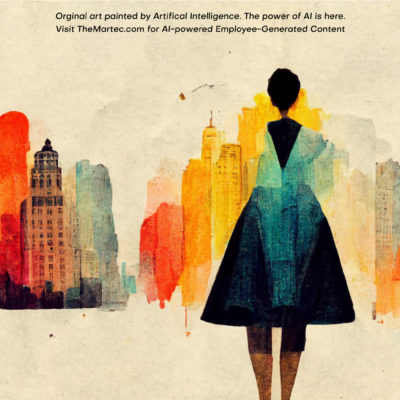
September 17, 2020 • 5 min read
Honesty and Transparency: The Hallmarks of a Great EVP
It’s drilled into us from a young age: honesty is the best policy. But as we get older, we begin to understand that white lies, half-truths and strategic silence have roles in our lives: to avoid embarrassment, to downplay possible negatives, and to generally keep people happy.
It’s perhaps not surprising then that for many brands, developing an employee value proposition (EVP) isn’t about offering candidates a completely honest and realistic picture of what life is like within the four walls of the office, but rather an idealised – and often simply untrue – version of it.
But while white lies might have an important role to play when a friend serves you a questionable tuna casserole, the truth is that even a slightly misleading EVP can have real and disastrous effects on your employer branding efforts.
To find out more, we spoke to two people who have made their careers in crafting finely tuned EVPs and employer brands: Meagan Michaels, Employer Brand Lead at Bupa, and Stephanie Scher, Talent Brand and Recruitment Marketing at Vanguard.
The importance of honesty and transparency in an EVP
Why is honesty important and transparency critical in an employee value proposition? Michaels feels that honesty should form the foundation of any relationship, whether professional or personal.
“An EVP is a bit like an online dating profile. The purpose is to attract people and to help them relate to you. If you tell them you’re athletic and own a speedboat, you’re going to attract active people who know what side starboard is. If the reality is that you can’t swim and would prefer to sit inside and read a book, then you are going to disappoint people and struggle to find the right match.
“Transparency and honesty allow you to manage people’s expectations so that they know what they’re getting into. It allows you to find the best fit.”
Scher finds a different metaphor. “Finding a new job is much like a consumer buying experience,” she says. “No one wants a ‘bait and switch’ – people expect their purchase to reflect the information they uncovered in their due diligence prior to purchase.
“Accepting a new job is one of life’s biggest decisions. The authenticity and transparency of the employer is crucial, as no one wants to start a new job and find out what they’ve been told or observed in the interview process is not consistent with the employee experience.”
The stats back the sentiment up. According to Gartner, organisations that effectively deliver on their EVP can:
- Reach 50% deeper into the labour market
- Reduce compensation premiums by 50%
- Decrease annual employee turnover by an incredible 69%

The negative impacts of a misleading EVP on your brand
But what is the flipside? Sure, honesty and transparency are good, but how exactly does a dishonest or misleading EVP affect your employer brand?
Michaels sticks to the dating analogy. “A misleading EVP is the fastest way to find yourself continuously returning to the dating pool. You might make it past the first date, or even find yourself in a relationship. But eventually the truth will come out and you’ll be looking at increased employee turnover, low employee satisfaction, and higher hiring costs when you ultimately have to fill the gaps left by disappointed employees. A relationship built on trust is more likely to be rewarding and long-lasting.”
For her part, Scher sees the internet as the true test of EVP credibility, and failing that test can prove incredibly difficult for a brand to come back from.
“Social media and employer reputation sites provide platforms for people to share experiences and opinions quickly and publicly. People are also more likely to share a negative experience with their networks than a positive one.
“For these reasons a misleading EVP isn’t just about the negative impact on employer brand and hiring initiatives; it could also impact consumer confidence. If it’s publicly known employees are unhappy at a company, why would a prospective employee want to trust the brand?”
A platform like Glassdoor can put the promises of your EVP in stark contrast to the realities. Greater external transparency demands greater internal honesty, and any company who thinks that they can get away with promising the world and delivering an atlas is in for a rude awakening.

What a successful EVP looks like
The importance of an honest and transparent employee value proposition is clear. But what form does such an EVP take? To find out, we asked our experts what a modern and effective EVP looks like.
“A successful EVP is built on research,” explains Scher. “This might include competitive industry info, talent and competitor information, and primary research with your employee and leadership base. It’s imperative that you uncover your strengths, areas of opportunity, and what differentiates your company from others.”
Scher feels that an organisation needs to give itself the information that allows it to speak honestly and authentically with prospective employees about the issues that matter to them most.
“A successful EVP is a balance,” says Michaels. “It should highlight the positive aspects of working at your company, but not at the expense of the realities.”
She also believes that the most successful EVPs are those that are personalised to the specific candidate. “Your EVP should be able to be dialled up or down depending on which segment of your audience you are speaking to – it should buck the idea that one size fits all.”
It turns out your parents were right all along: honesty is indeed the best policy, at least in the quest to attract and retain top talent. While an EVP is an opportunity for your organisation to sell itself, the best pitch is the one that paints a clear and complete picture, not just the highlights, and that avoids the overt embellishments.
Because when you offer honesty, integrity and transparency to a potential employee, you’re far more likely to get exactly that in return.

About our contributors:
Meagan Michaels is the Employment Branding Lead at Bupa A&N, a position she loves as it allows her to leverage her skills to create successful and dynamic employer brand strategies, with a focus on building brilliant basics and the infrastructure for future success. When Megan is not in the world of EB she enjoys geeking out over books, women in business and all things digital!
Stephanie Scher is the Talent Brand and Recruitment Marketing Manager at Vanguard and hails from the US. Her passions include developing and implementing strategy and educating key hiring stakeholders about the digitization of the candidate experience and the impact of digital and social media on job seekers.



